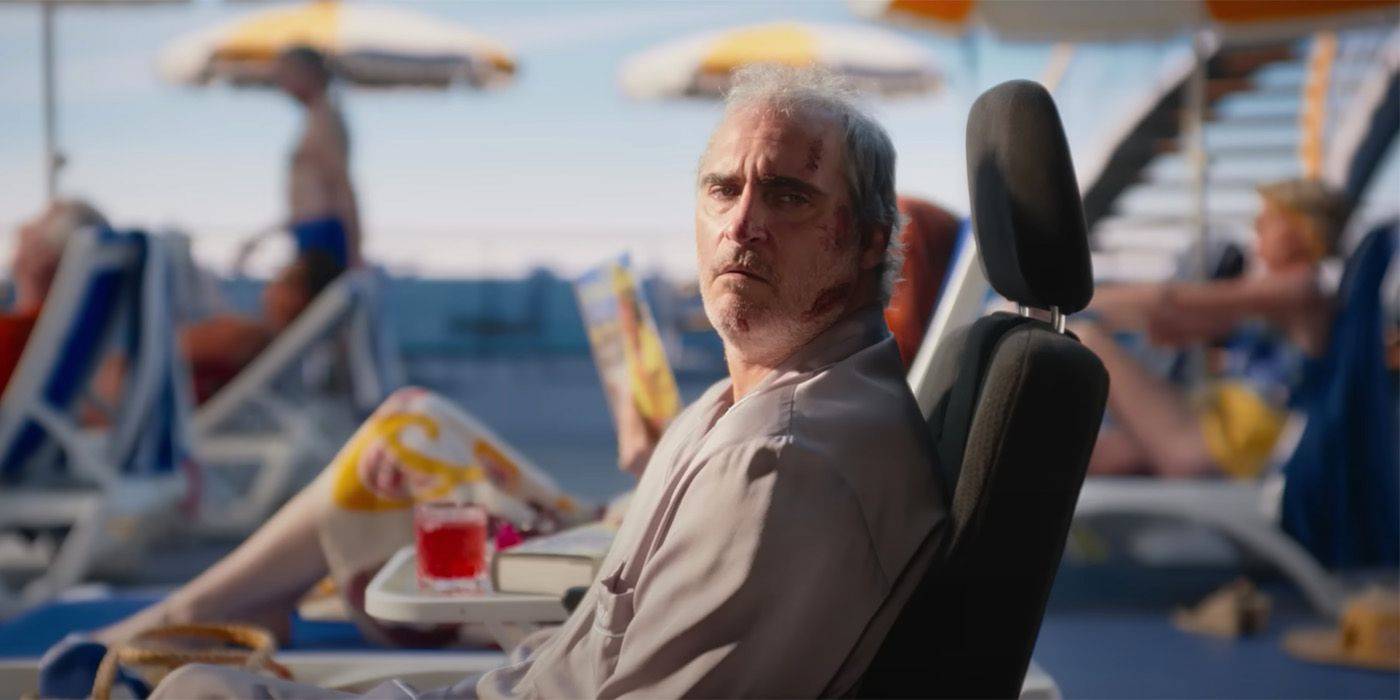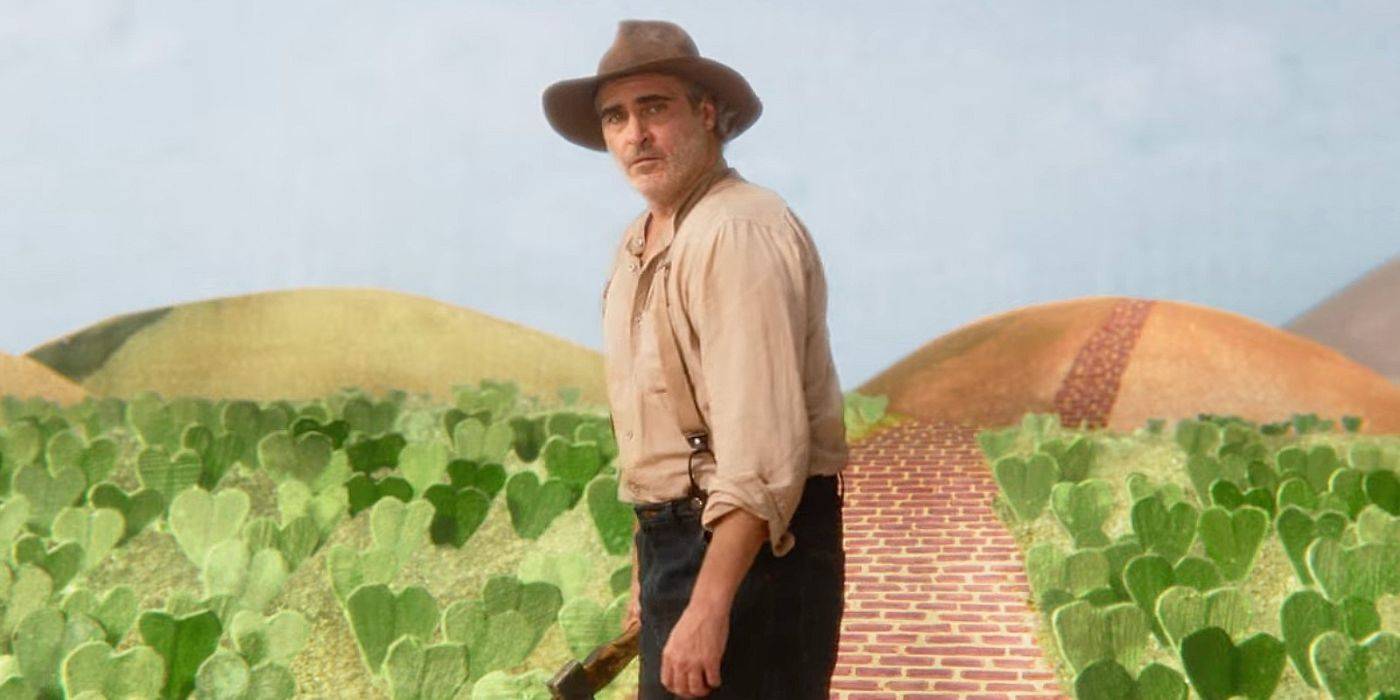
Particularly, Beau, the troubled man, has had a significant change in his life. The movie follows the character, played by Joaquin Phoenix, as he braves the world beyond his flat, is gravely hurt after being hit by a car, wanders through the forest, and learns that his entire journey to his mother’s house was based on a lie. He believed that said mother Mona, who was brilliantly brought to life by Patti LuPone, had perished in a tragic accident involving a chandelier, but she is actually still very much alive.
When Beau was having sex with his childhood sweetheart Elaine (Parker Posey), who passed away as the climax approached, he learned this unfortunate information. This came as a surprise because he had been warned as a child that if he ever attained this level of pleasure, he would perish. As soon as this switch is made, Mona tells her son who she is and that she had been keeping an eye on him all along. It turned out that all the individuals he encountered along the road were watching him and filming everything he did. Beau also discovers that his previous dreams were all true, and that his twin brother was actually imprisoned in the attic along with their father, who is literally a huge monstrosity of a penis. Still following along? Put a pin in this for now; this is just the appetiser to the main course.
Making a Case Out of Everything
Beau chokes his mother out of wrath after discovering that he had been misled. She is still choking when he finally wakes up, and she collapses through a piece of furniture. Beau quickly leaves the house in a stupor after being shocked by what he had done, his face frozen in terror. Then, after finding a motorboat and using it to travel down a tunnel to get there, he finds himself in some sort of stadium. Not only is his mother present—also raised from the dead—but he is also being watched by a crowd. A trial starts with Beau stranded in the water. It is a show that explores all of his numerous shortcomings. Dr. Cohen, a family friend who we had only spoken to over phone calls but who is now tearing Beau apart, is prosecuting him and is portrayed by Richard Kind in remarkable form.
Comparatively speaking, his defence counsel is little, barely able to raise his voice high enough to be heard before being tossed to his death onto the rocks. Beau is almost certainly guilty in this staged trial. As the titles roll, the boat is turned upside down, with him probably dying inside it. The crowd then disperses, seemingly disinterested in the entire situation. With little fanfare or climax other than death to signal that this is the outcome everything has been building to, it is nearly anticlimactic.
With that said, it should be stated that the movie is essentially a parody. Aster is dialling up a tone that had only been a mild undercurrent in his previous films but was a fundamental component of his many shorts, starting with the phone call where Beau is informed of his mother’s death and ending with the find made in the attic. He has produced an absurdist comedy that is braided into an existential horror show to expose the flaws in one guy. This character’s name is Beau, and he has a lot of problems. Putting that pin back in place, it is obvious that the movie is about how failures in life can add up to a weight that is too big to carry. Beau might be Aster inventing a persona based on his own deeply held concerns, according to one interpretation. This is what I’ll refer to as the “mother issues theory,” with all the simple references to Freud or other broad uses of psychotherapy that can be made. In light of this, the more intriguing concepts emerge when we disregard this and consider everything—including papa penis—to be mere window dressing for the subject that interests Aster the most: his interaction with the audience.
Beau and Aster Are Most Afraid Of Us
There is no relief from Beau’s misery as he reaches the end of the path. Even though nothing truly was accomplished, he underwent what could nearly be considered a classic hero’s journey, which included leaving his flat by literally crossing a threshold. Beau is forced to reflect on what he has accomplished up to this point, but he does not do it alone. Instead, a group of strangers will now have the opportunity to analyse and pick apart each step he made to get there. Whether Beau is intended to be a literal representation of Aster or not, every artist leaves a piece of themselves when they create. After that, every choice they make is scrutinised and dissected. This particular piece is an example of that since it dissects the literal occurrences to reveal their underlying themes. Aster bows before the audience as Beau is subsequently destroyed, unable to fight back against everything that is being thrown at him. There is something really unsophisticated about this ending, despite the fact that many people have hurried to label the movie as pretentious, labelling it as excessive when it is far more controlled than that. In this case, the final image speaks for itself.
It’s significant that we are left to watch the crowd leave in an uninterested manner, as if they didn’t really care about what transpired. The plot continues even after the death of the familiar character. Everyone that participated in it, including us as the audience, are acutely aware of how they will move forward in their own lives. Over three hours, the audience watched as Aster’s mind was revealed to us, just as Beau’s was revealed to the assembled people. The process culminated in the destruction of the latter, whose repercussions the movie continues to explore. Its destruction does not involve a painful rebirth or resurrection like in Midsommar or Hereditary. Instead, it has a sense of closure, which is Aster’s admission that whatever he puts out there may be forgotten and dead to the numerous audience members who will leave the room without giving it further thought. It acts as a last-ditch effort to face fear. This devastation brings a desolation, whether it be of judgement of one’s work, life, or a combination of both. No matter how much one gives of themselves to tell a good story, there is always the dismal possibility that you’ll be left to drown, as Beau himself imagined in vivid detail halfway through.

